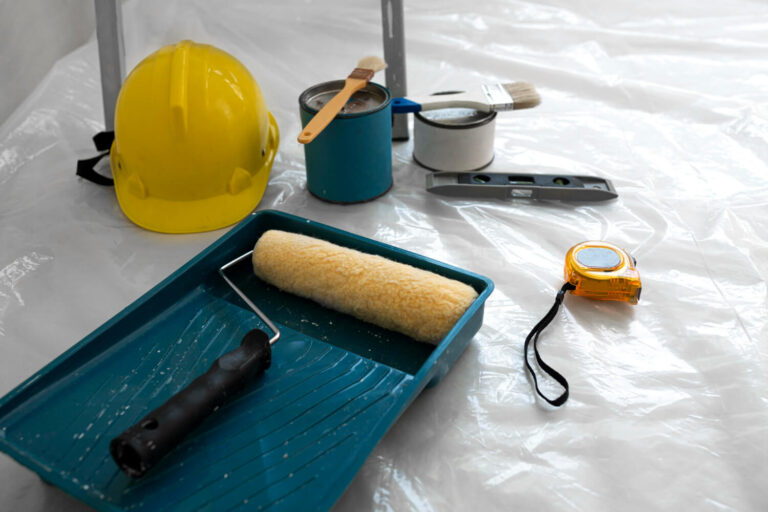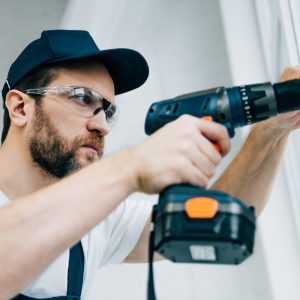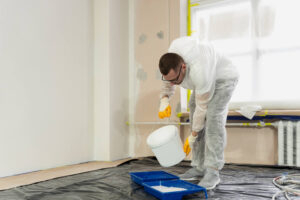Phoenix, AZ, is known for its scorching summers and mild winters, making it crucial to pick the right time for house painting. If you’re planning to refresh your home’s exterior or interior, understanding Phoenix’s climate and how it affects paint can help you achieve the best results. In this guide, we’ll explore the best seasons for painting, how to avoid weather-related issues, and tips for a long-lasting finish.
Why Timing Matters for Painting in Phoenix
Paint quality and longevity are directly affected by temperature, humidity, and sunlight exposure. In Phoenix, extreme summer heat can cause paint to dry too quickly, leading to cracks and uneven finishes. On the other hand, colder temperatures in winter may slow the curing process.
Choosing the right season ensures:
Smooth Application: Paint adheres evenly without drying too fast.
Durability: Reduces the risk of peeling and blistering due to weather conditions.
Efficiency: Allows painters to work comfortably, reducing labor costs.
Best Seasons for Exterior Painting in Phoenix
Spring (March – May)
Spring is one of the best times to paint your home in Phoenix. The moderate temperatures (ranging from 70°F to 90°F) provide optimal conditions for paint to cure properly. There is also less rain, reducing the risk of moisture-related problems.
Pros:
Ideal temperatures for paint drying and curing
Less exposure to intense summer sun
Extended daylight hours for faster completion
Cons:
Popular season for painting, so scheduling may be competitive
Fall (September – November)
Fall is another excellent season for house painting in Phoenix. Temperatures range from 70°F to 85°F, making it comfortable for painters and ideal for proper paint adhesion.
Pros:
Consistent temperatures with minimal fluctuations
Less humidity, preventing paint from trapping moisture
Great time to prepare for winter weather
Cons:
Shorter daylight hours compared to summer
Seasons to Avoid for Painting in Phoenix
Summer (June – August)
Phoenix summers are extremely hot, with temperatures frequently exceeding 100°F. Painting under these conditions can cause paint to dry too fast, leading to uneven coverage and reduced durability.
Problems in Summer:
Paint dries too quickly, leading to visible brush marks
Risk of paint blistering due to intense heat
Dangerous working conditions for painters
Winter (December – February)
While Phoenix winters are milder than in other parts of the country, nighttime temperatures can drop below 50°F. Paint requires consistent warmth to cure properly, so winter is not the best time for exterior projects.
Challenges in Winter:
Cold nights can slow down paint curing
Temperature fluctuations may affect adhesion
Limited daylight reduces working hours
Best Time for Interior Painting
Unlike exterior painting, interior painting can be done year-round as long as there’s proper ventilation. However, fall and winter are often the best seasons since doors and windows can be kept open for airflow without letting in excessive heat or cold.
Tips for a Successful Paint Job in Phoenix
Choose High-Quality Paint: Use UV-resistant and heat-reflective paints for exteriors to withstand Phoenix’s intense sun.
Plan for Shade: If painting in warmer months, schedule work during the early morning or late afternoon when the sun isn’t directly overhead.
Hire a Professional Painter: An experienced painting contractor knows how to work around Phoenix’s climate challenges.
Monitor Weather Forecasts: Avoid painting on days with extreme temperatures, strong winds, or high humidity.
Use Proper Painting Techniques: Avoid painting directly under the sun to prevent premature drying and cracking.
Final Thoughts
The best time to paint your home in Phoenix, AZ, is during the spring or fall when temperatures are moderate, and weather conditions are stable. If you’re considering repainting your home, contact Evolution Painting Services today for expert recommendations and a free quote. With our experience in Phoenix’s climate, we ensure a flawless, long-lasting finish for your home!
Ready to refresh your paint?
Ask for a FREE Quote!




